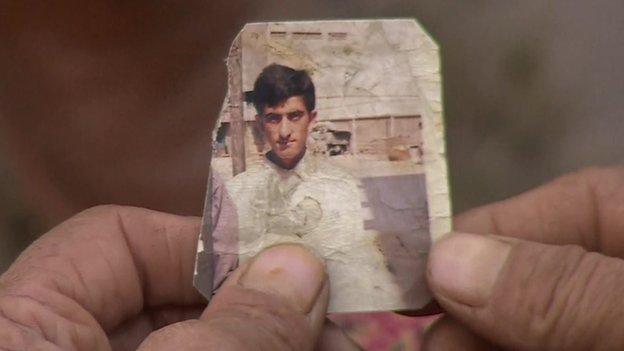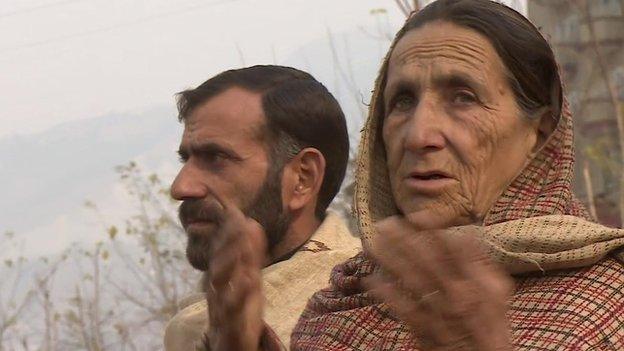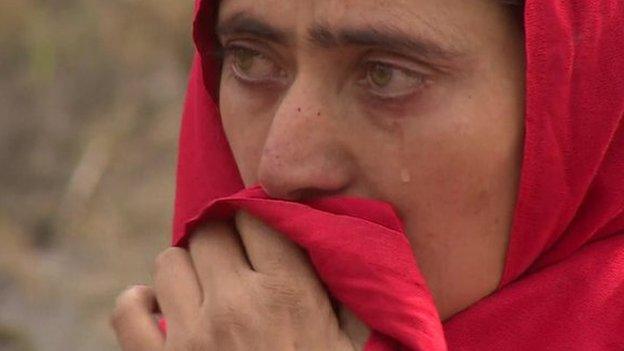Pakistan grants Shafqat Hussain stay of execution
- Published

Shafqat Hussain was a minor at the time of his conviction
Pakistan's government has halted the execution of a man sentenced to death by an anti-terrorism court.
Shafqat Hussain had been due to be executed on 14 January. He was charged with involuntary manslaughter in 2004, when he was 14 years old.
Rights groups said that Hussain was tortured into a confession.
Pakistan's Interior Minister Chaudry Nisar announced the stay of execution on Monday and said a team would investigate the case.
The government lifted a moratorium on the death penalty last month, following a deadly Taliban attack on a school in Peshawar that killed 152 people.
Human rights groups say that Pakistan has the world's largest number of death row inmates, with more than 8,000 people awaiting execution.
'A grave stain'
Hussain was allegedly tortured into confessing to murder in 2004, and sentenced to death by an anti-terrorism court.
Rights groups had expressed concerns over Hussain's case, arguing that he should not have been tried by Pakistan's anti-terrorism courts as the charges against him were not related to terrorism.
Sarah Belal, from Justice Project Pakistan, described the stay of execution as "good news".
"We are optimistic that the inquiry announced by the interior minister will take all relevant parties on board and lead to him eventually going home to his old parents," she said in a statement.
Maya Foa from campaign group Reprieve said: "Executing Shafqat, who was a child when he was tortured into a false 'confession'... would do nothing to reduce the terror threat in the country, and would be a grave stain on Pakistan's justice system."

Shafqat Hussain's family have asked for a re-trial
Hussain comes from a poor family from Kail sector on the Line of Control with Indian-administered Kashmir.
He left home for Karachi in search of a job more than a decade ago. His parents have not seen him since.
Anti-terror campaign
Pakistan resumed executions in December, following a four-year moratorium on the death penalty.
Authorities also cut the time between issuing a warrant for hanging and carrying out the sentence to three days.
About 500 people are expected to be executed in the coming weeks.
However, human rights lawyers say at least 200 of those set to be executed were not convicted on terror-related charges.
The move comes as Pakistan steps up its campaign against the Taliban and other militant groups.
On 24 December, Prime Minister Nawaz Sharif announced plans to establish military courts to hear terrorism-related cases.
He said this would help ensure "terrorists pay the price" for their "heinous acts".
The military has also stepped up its campaign against militants in the tribal areas in the northwest of the country.
- Published25 December 2014
